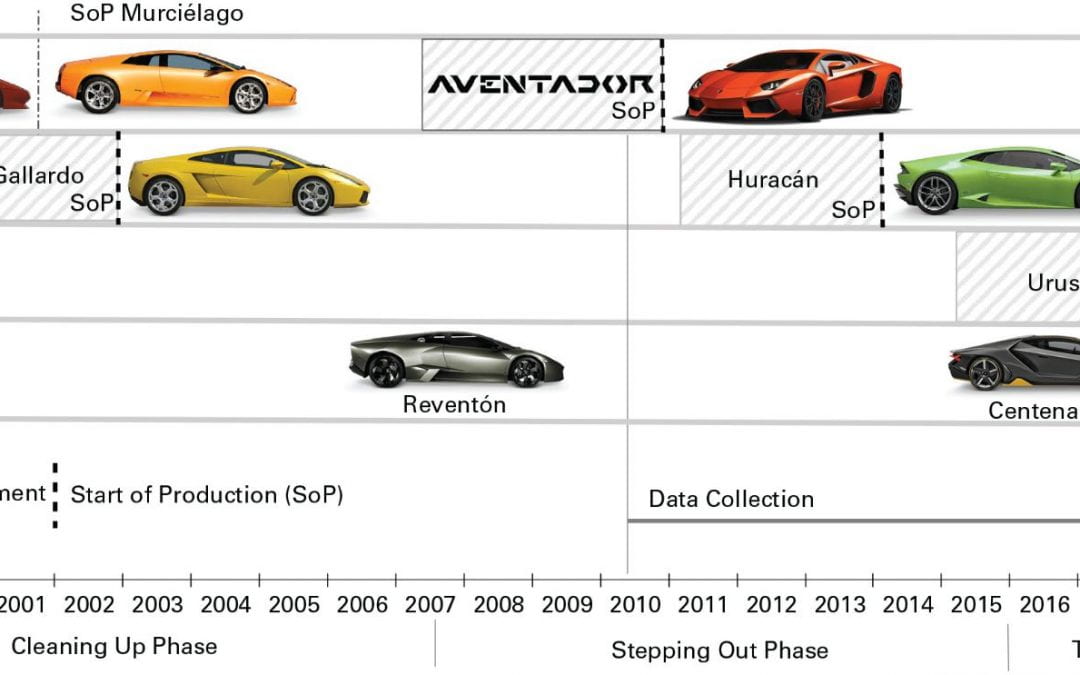New article by Brice Dattée and Jean-Luc Arrègle in Administrative Science Quarterly.
Through a 21-year longitudinal study of the relationship between Italian supercar manufacturer Automobili Lamborghini and its parent, German carmaker Audi AG, we examine how a unit’s degree of organizational autonomy is renegotiated over long periods of time. Using detailed empirical data, we develop a process model of the dynamics of organizational autonomy in a unit–parent relationship. This process model shows an ongoing dialectical tension between parent managers’ autonomy-reduction efforts and unit managers’ autonomy-extension efforts, and it reveals oscillations in the unit managers’ discretion over resource-orchestration decisions. Driving this dialectic are parent managers’ appraisal respect for the unit, their search for firm-wide strategic integration, and unit managers’ organizational identity and concern for distinctiveness. Our process model captures concurrent feedback loops that endogenously produce these oscillations between lower and higher autonomy. We then conceptualize a harmonic domain in the unit–parent relationship, in which these oscillations persist without deviating toward amalgamation or separation. Finally, we develop a theory of change in autonomy by identifying a theoretical link between resource orchestration and specific dimensions of organizational identity. Our study highlights the dialectical, dynamic, and ongoing nature of organizational autonomy.
Reference:
Brice Dattée, Jean-Luc Arrègle, Paolo Barbieri, Thomas C. Lawton, and Duncan N. Angwin. The Dynamics of Organizational Autonomy: Oscillations at Automobili Lamborghini, Administrative Science Quarterly, Published online April 15, 2022. https://doi.org/10.1177/00018392221091850


